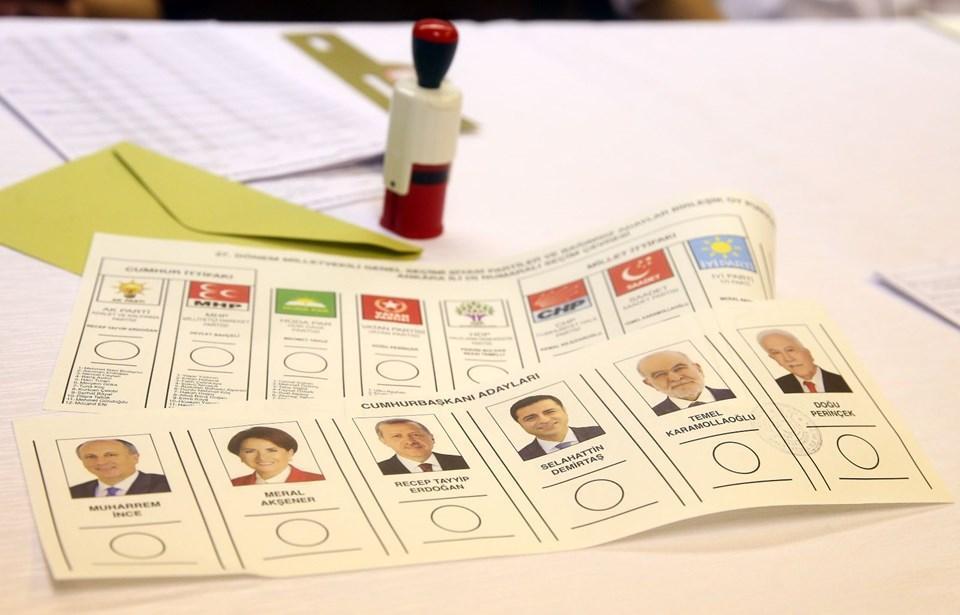
Citizens head to the polls around across Turkey on June 24 in snap presidential and parliamentary elections to elect 600 lawmakers and the country’s first president with broad executive powers.
The voting process for 56.3 million registered citizens will be held between 8 a.m. and 5 p.m. local time at 180,065 ballot boxes in all 81 provinces of Turkey.
Some 1.65 million registered citizens will be casting their first votes in the snap election, which will herald a switch to a new powerful executive presidency narrowly approved in a controversial referendum last year, marred by allegations of fraud.
For the first time, the presidential and parliamentary ballots will be placed in a single envelope.
While two broad electoral alliances are entering the parliamentary elections, six names are running for the presidential office.
President Recep Tayyip Erdoğan is up for the seat from the “People’s Alliance,” racing on behalf of the ruling Justice and Development Party (AKP) and the Nationalist Movement Party (MHP).
IN PHOTOS: Opposition’s vow ‘admission of defeat’, Erdoğan says in campaign finale

Muharrem İnce is running from the main opposition Republican People’s Party (CHP) and jailed Selahattin Demirtaş is running from the Kurdish issue-focused Peoples’ Democratic Party (HDP).
İYİ (Good) Party leader Meral Akşener, Felicity Party (SP) leader Temel Karamollaoğlu and Patriotic Party (VP) leader Doğu Perinçek are also running for the post after collecting 100,000 signatures from citizens to be nominated.
IN PHOTOS: CHP candidate İnce promises ‘different tomorrow’ at final rally on eve of elections

As his requests for release have been rejected by courts, Demirtaş recently became the first politician in Turkey to make a campaign speech from prison, addressing voters through his wife’s phone on June 6.
A first in Turkish political history: Electoral alliances
The landmark election day was rescheduled to a year-and-a-half before its original date following a joint proposal made by Erdoğan and MHP leader Devlet Bahçeli on April 18. After parliament approved the bill on April 20, the two leaders declared they would enter both elections in a “People’s Alliance,” officially launched on May 1.
For the first time in Turkish history, political parties will go to elections by forming alliances as ballots will bear the name of the alliance juxtaposed to that of the candidates whose parties have decided to proceed with forging an alliance.
In the parliamentary run, the AKP-MHP bloc will be up against the “Nation Alliance,” an electoral formation including the CHP, İYİ Party, and the SP.
In Turkey, a political party must receive 10 percent of the votes nationwide for any of its candidates to win seats in parliament. According to the new rules, only the alliance needs to pass the much-criticized 10-percent threshold in order for the parties to claim seats.
While the “People’s Alliance” promises “stability” to the voters, the “Nation Alliance” pledges “change.”
On Election Day, media organizations will not be allowed to broadcast any political advertising, predictions or comments about the elections until 6 p.m. Between 6 p.m. and 9 p.m., media outlets will only be able to publish official announcements about the elections issued by the Supreme Elections Council (YSK).
Alcoholic beverages will not be sold from 6 a.m. to midnight, while consumption of alcoholic beverages will also be prohibited in public places.
11 PKK suspects detained for 'provocative action' on Election Day

Two rounds of counting: Presidential and parliamentary
After voting ends, ballots cast for the presidential candidates will be counted first, state-run Anadolu Agency reported.
If there is no mathematical need to go to a second round, which would take place on July 8, the president will be named first.
The parliamentary votes will be counted second and are expected to take longer than usual, as parties up for office are entering the vote in two electoral blocs.
The YSK has said that although the calculations for the alliances seem complex, the procedures will be rapidly and automatically handled through software designed by the YSK.
This software, SIPPORT, short for the “Political Party Portal” in Turkish, was in use during the local elections in 2014 and all elections following that including the April 2017 referendum.
The software allows for party headquarters to monitor every piece of data entered into the “Elections Informative System” by provincial election councils at each step of the way after the election councils enter the data.
Turkish opposition, NGOs form alternative platform for vote count
